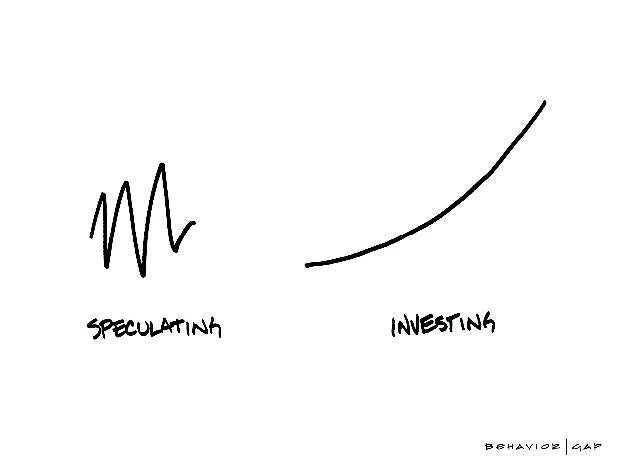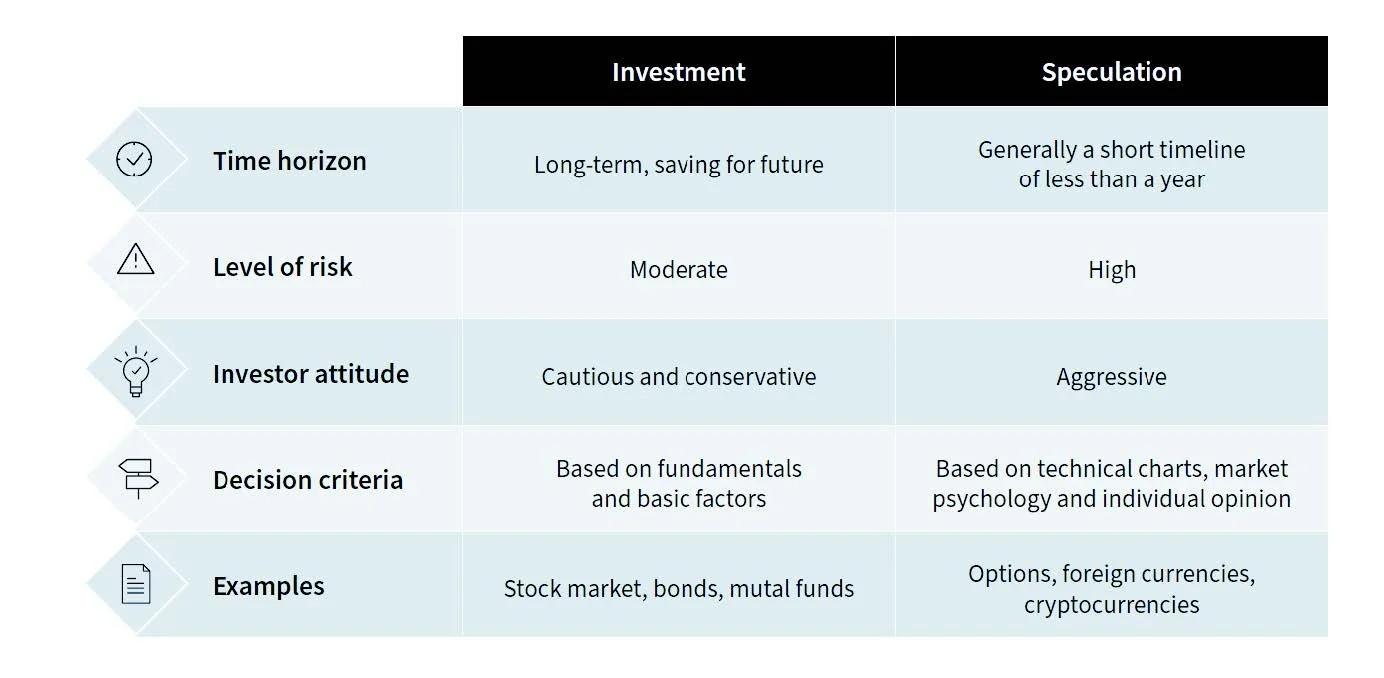Investment or speculation – where does cryptocurrency fit?
/Unlimited opportunities exist today to invest your money and cryptocurrency (or crypto) is one of the latest buzzwords in the finance world today. But what is crypto really, and how do you decide whether it’s the right ‘investment’ for you?
In this article, we first look at the key differences between ‘investment’ and ‘speculation’. We then explore cryptocurrency and where it sits on the spectrum of buying opportunities.
The global economic volatility experienced during the COVID-19 pandemic has clearly demonstrated both the best and worst of investing.
Research suggests that speculative buying increases during times of uncertainty. We witness this daily with the plethora of gambling app advertisements plastered across our screens. We see it in the sky-high property market, with properties being sold within 24 hours to buyers –sight unseen. The pandemic may also account for the rise of cryptocurrency and the proliferation of new trading platforms such as Robinhood, Superhero and Sharesies.
The decision on how and where to invest your money really comes down to what you want. If you’re looking for a good time, then you’re better off placing bets on your favourite sports. If you’re in it for the medium to long-haul, then you should consider more traditional asset classes to grow your money.
Understanding the difference: investing versus speculating
Definitions of these two terms vary slightly, but most follow these lines.
An investment is an asset or item acquired with the goal of generating income or appreciating in value in the future.
Speculation is a financial transaction that has substantial risk of losing all value, but with the expectation of
a significant gain.
The main difference is the amount of risk involved. As we know, all investments carry some level of risk. However, the potential for enormous wins or losses is significantly higher with speculative buying. It’s these price swings a speculator bets on to generate a return.
As we know, one of the key principles of a solid investment is ‘time in market’ rather than ‘market timing’. Although we seem to have a natural urge to transact, getting into and out of the market is gambling, not investing. If you treat the market like a casino, and you’re picking stocks or attempting to time the market, you need to be right twice to ‘win’—that is buy low and sell high.
In the table, you can see speculative buying is driven by short-term horizons and decision-making. This increases risk and emotional biases such as overconfidence, loss aversion and inertia. At the end of the day, speculative buying can lead to disastrous investment decisions.
Table: Key features of investment and speculation
Table: Key features of investment and speculation Source: U.S. Global Investors
What about cryptocurrency: investment or speculation?
For those of us who are crypto-curious, it’s wise to see where bitcoin and other cryptocurrencies sit on this investment/ speculation spectrum.
In the words of social commentator John Oliver, “Bitcoin is everything you don’t understand about computers combined with everything you don’t understand about money – what can go wrong?”.
Many evidence-based financial experts would most likely agree – putting it clearly in the speculation end of the spectrum! With one of Australia’s largest banks (CBA) allowing users to trade cryptocurrencies from November 2021, investors are once again asking the question – is crypto investment or speculation?
So, what is cryptocurrency? According to Nasdaq, it is, at its core, a system of value. It runs on blockchain technology, which is simply a digital ledger of transactions. This ledger (or database) is distributed across a network of computer systems. No single system controls the ledger. Instead, a decentralised network of computers keeps a blockchain running and authenticates its transactions.
Cryptocurrencies are known for their wildly unpredictable price fluctuations, environmental damage due to the exorbitant amount of electricity the computer systems use (bitcoin mining uses more electricity than Argentina1), and the role they play in money laundering.
The professional investing world is divided on the validity of a digital ‘coin’ as an asset, or a real currency. The ATO has only recently classed crypto as assets, rather than currency and have also warned Australians of the myth that “their cryptocurrency gains are tax free or only taxable when holdings are cashed back into Australian dollars”. Taxpayers with cryptocurrency will need to report their capital gains or losses just like any other asset class.
In addition, Australia is still yet to regulate crypto assets, and cryptos are not yet classified as financial products so are currently ‘out of bounds’ for financial planners and stockbrokers. This leaves advice on the crypto industry largely in the hands of the unlicensed and unregulated, such as advice coaches, social media influencers or tips from friends and family.
Final word
Investing in a variety of asset classes and maintaining a medium to long-term view is a great way to build wealth over time. When it comes to crypto, the rules and returns remain a little unknown.
Regardless of how you are investing, we recommend a well- considered, tailored investment strategy that considers a number of factors including your risk tolerance, time horizon, your investor attitude and of course your taxation strategy.
1 University of Cambridge Bitcoin Electricity Consumption Index 2021




